ANY time is a good time to speak to Derek Veitch about the bloodstock industry. The Fermanagh native has 21 years of experience in the game, crafting out a reputation as one of the most-respected Irish breeders around, operating from his and wife Gay’s base of Ringfort Stud, Co Offaly.
But getting a half hour on the phone with Veitch this week, as he waits to board a plane home from Stansted, his last business trip back from Newmarket in a truly unique year, is a very good time indeed. Airport lounges do tend to elicit extra reflection after all.
A veterinary surgeon, who initially travelled around the world working for the King of Saudi Arabia, Veitch got sucked into racing when he met Gay, née Weld, a cousin of Dermot’s, 37 years ago. His highly respected reputation has been derived through a multitude of shrewd investments and for years he has been consulted by friends and by clients, for whom he has provided a wide range of bloodstock services.
Indeed a sign of how interconnected he is within the industry is provided immediately after this interview ends when Cayenne Pepper, who boarded at Ringfort, sells for 2,000,000gns at the December Mare Sale he just departed.
Last year was a contrast of emotions for him. He bade a sad farewell to his good friend and neighbour Pat Smullen, while on the track, he had a truly unique set of results through the exploits of Ringfort homebreds Miss Amulet, Minzaal and Ubettabelieveit who all won Group 2s in the space of three weeks. Indeed Minzaal gave the stud back-to-back winners in the Gimcrack after Threat won the year before.
Those achievements came while Veitch was selling into a market that continued to be affected by the pandemic and he freely admitted last September that he was very worried for the future given the contraction in the market. But like most, he has been pleasantly surprised with how trade has boomed in 2021.
“I think it’s been an amazing year considering what’s been going on in the background with Covid, the economy, inflation, and especially with Shadwell and Darley changing their approach to things dramatically in terms of what they spend in the yearling ring,” Veitch explains.
“That became very obvious very quickly in America and France, and in Newmarket as well. They’re only buying out a few Dubawi shares and not much else after that. Everybody aimed a lot of horses at sales with Rabbah, Shadwell and Godolphin in mind, you know, so that has all changed. I suppose that means the way we change is important now to accommodate that; the way we breed our mares and the stallions that we support going forward now.
“Overall, I think the positivity has come about as a rebound effect of lockdown. People have got out and about and are willing to try and invest, with the likes of Shadwell pulling up and giving us an opportunity that we thought we wouldn’t have.
“That’s a positive effect for this year but I don’t know how long that will continue. In my opinion it’ll only be short term, maybe for another year because I think inflation is kicking in, costs of living in Ireland are going up.
“I think the foal sales last week at Tattersalls were good considering Shadwell pulled up. I think people saw it as an opportunity and they came in and tried to take advantage of it. Going forward for me, as a breeder, I found that the yearling sales were acceptable by and large, and most people were pretty happy.
“I don’t think the same quality of foal turned up this year at Book 2 to Book 1 level. I think particularly at Tatts, a lot of people brought foals, showed them for a couple of days and then realised they’d no action and they just took them out.
“It might have been difficult for any person that was selective about what they needed to complement their own breeding programmes at home or what they thought the market would accept next year and they wanted to buy this year. There has been a lot of change.
“It’s a time of transition. In my lifetime, Sheikh Mohammed and Sheikh Hamdan have been around as long as I’ve been in the industry. You can’t rely on them forever, just like Aidan O’Brien can’t rely on Galileo anymore. It’s a big change.”
Ringfort sold 10 foals to accrue 675,000gns at Tattersalls last week, headlined by a Blue Point filly who went to Blandford Bloodstock for 300,000gns. That was one of three end-user buyers of Ringfort stock, unique at a foal sale.
Shrewd
The Blue Point filly is out of Indigo Lady, a mare Veitch owns in partnership with Paul Hancock, whom he offered a 50% buy-in when she was led around unsold at Tattersalls December Mare Sale in 2013. That turned out to be a very shrewd investment as Indigo Lady would go on to produce a Lope De Vega colt who realised 500,000gns at this corresponding sale in 2018 and earlier, a Dark Angel filly, Indie Angel, who secured 600,000 guineas and won the Group 2 Duke of Cambridge Stakes at Royal Ascot this year.
“She’s been a very successful mare breeding,” Veitch says. “Because she had Indie Angel this year, it extends her shelf-life dramatically. We’re very lucky to have had a good result on the track and then have a nice foal by a popular first-season sire. That’s what added up to your success for someone to race your product.
“She’s been a very lucky mare, she’s provided a lot of return on the investment I made. If they were all as good it would be easy. We also bred a nice horse this year called Fearby (listed winner and Group 2-placed). We sold his half-sister (by Profitable) to an end-user there as well. Minzaal didn’t get to race much this year but he showed towards the back-end of the season that he’d trained on and we were delighted to sell a half-sister to him to another end-user, so that was great.”
Minzaal and his Profitable half-sister link way back to the early years of Ringfort Stud. The dam Pardoven was an unraced filly out of Dancing Prize, who Veitch bought for 38,000gns at Tattersalls in 2001. Dancing Prize produced six individual winners for Ringfort, including the six-time winner and Group 3-placed Firebet.
Pardoven was sold but bought back by Veitch who also kept another one of Dancing Prize’s daughters, Sassy Gal, who has also produced six winners. The family is a good example of Veitch’s judgement, when to sell and when to hold on, which has served him so well down the years, but it isn’t always as simple as the subsequent progeny sales results suggest.
“Everybody sees the ring price or they see a particular horse sell well but they don’t see the costs against a horse sometimes and they certainly don’t see the losses on the farm or the issues on the farm with other horses getting injured or sick or mares with slipped foals or things that have happened.
“So you don’t balance the books well whenever you see the public image of something. For me it’s very important that everybody sees both sides of it because I think if you saw my side of it, it wouldn’t look so good. We need an odd very good day, everybody does in this business, or else you couldn’t survive at all.
“It’s the same on every farm. We never get too carried away, we try to keep our feet on the ground but we’re fortunate we’re in an industry where you can be down one day and up the next and keep going. We’re lucky we’ve been doing that for a number of years and we’re still in the black.”
Speed
Veitch has moved with the industry’s tilt towards speed in the last decade, acknowledging that the younger generation of buyers want results faster. He has stayed local with Tally-Ho sires and it has worked out for both parties. His strategy on selection of mares has stayed true to what he did on day one.
“Traditionally it was all about economics because we invested at a very low level and traded anything we could afford and then tried to breed to anything we could afford economically and then hopefully we got a horse that the market wanted and made it us a profit,” he explains.
“We’ve been doing that for 21 years so I don’t think I’m going to change that policy regardless of what stage I’m at and particularly now because I don’t think any of my family have any interest in my farm continuing on. We’re privatising the farm this year for the first time in 20 years and the reason we’re doing that is to try and have a little bit more time to live, that we don’t have to keep working at the same level for other people or for ourselves.
“When your children don’t want it, that’s the right thing to do, to start living life a wee bit more. We’re going to hit cruise control rather than expansion from now on.”
Veitch sold 27 of his 31 lots at the November Foal Sale at Goffs but a large part of those consignments were for friends and clients, largely Irish, and so they wanted to sell their foals at an Irish sale. From his own stock, he says there was little difference between the two major sales at Goffs and Tattersalls.
“In my experience I don’t think there’s any difference between the two sales at all. If the foal was there, the right people were there to buy it in Goffs. It was just as good as it was in Newmarket. I think there was great trade for the workmanlike sort of foal, the €15,000 to €40,000 sort of foal, that a lot of people breed and try to sell. We had a lot of those in Goffs and there were a lot of people buying at that level.
“But once you went over 50,000, good buyers were thin on the ground at that level. That was the same in Newmarket, once you went over £50,000, it became quite difficult to sell. It was very soft in places at Newmarket.”
Brexit
More pressingly for Tattersalls Newmarket and other British-based sales, Veitch believes there are significant issues arising out of Brexit for Irish breeders going forward.
“Paying VAT on every horse leaving the UK and coming back into Ireland is a huge issue,” he asserts. “You have to pay it up front before the horse is allowed through customs in Dublin. So if you buy a horse on Tuesday and you bring it home on Tuesday night, you have to pay the flat-rate farmers rate or the VAT to the Irish government before the horse is allowed on the lorry through the ports in Dublin.
“That’s an issue that’s arisen since Brexit. It’s been a problem all year with yearlings and then if you don’t sell your horse in the ring, you buy it in in the ring, and you don’t provide a proof of export certificate, Tattersalls charge you 20% English VAT, so for Irish people that aren’t VAT registered in the UK, that’s a major issue going forward.
“Clearly it’s become difficult. A lot of people didn’t turn up at those sales – Book 3 and that type of sale – because they didn’t want that. Cash flow has become difficult and movement of the horse has become difficult.
“It changed everything dramatically for Tattersalls this year and I think they are seeing that, not at the top level, but definitely at the the 15,000 to 30,000 level, those people are all turning up and buying at the Sportsman Sale or the November Yearling Sale, so they can trade within Europe and go back into Europe.”
Resilience
That is one of many issues the industry may have to contend with in the next 12 months and beyond and while Veitch has some concerns, he has stood the test of time and paid tribute to the resilience of the industry.
“It’ll be interesting to see the positive and negative effects of the likes of Shadwell pulling up. I know 44 people got their redundancies there on Monday in Derrinstown. That will make a big change when those people are absorbed into the industry elsewhere. Overall there are some very strong parts of our industry and it has been a resilient industry for the 21 years I’ve been in it.
“It always amazes me that we seem to have a bounce-back factor every two to three years. If you’re ready for the good years you can overcome the bad years.”
And despite the potential for some bad days or indeed years, Veitch doesn’t hesitate when asked if he’d recommend a career in the bloodstock industry.
“I’d recommend it to any young person who is willing to work, is a good stock person, uses their head and thinks carefully about all the advice given by different people,” he says.
“Nothing can make you money as quick as a horse and nothing can lose you money quicker either. I’ve seen some huge differences to people in the space of three minutes in the sales ring, life-changing differences.
“It’s a lovely feeling and it’s a great thing to watch.”
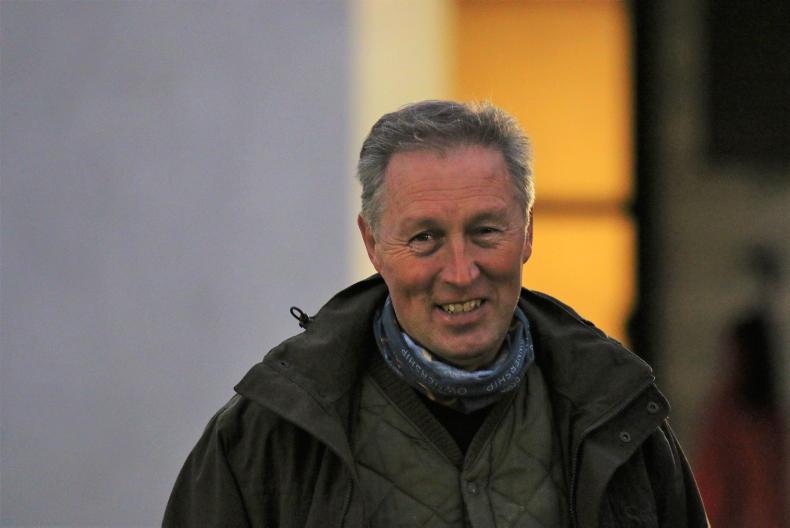

 This is a subscriber-only article
This is a subscriber-only article
 It looks like you're browsing in private mode
It looks like you're browsing in private mode




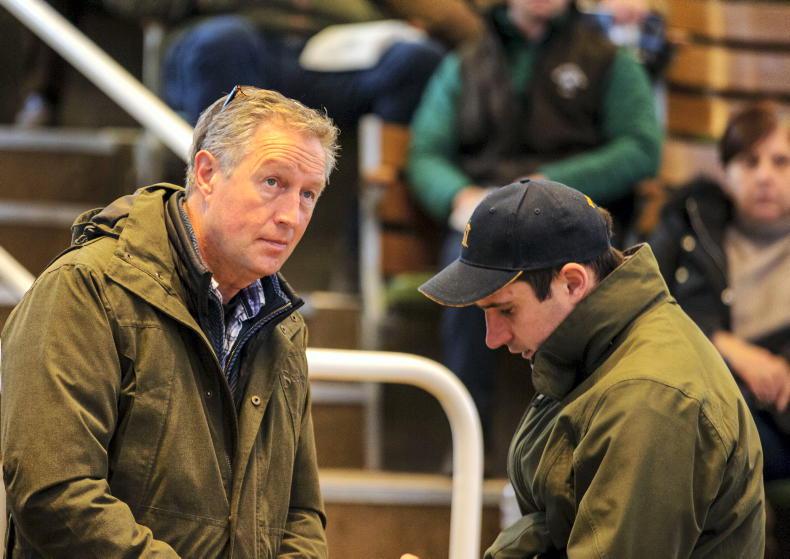
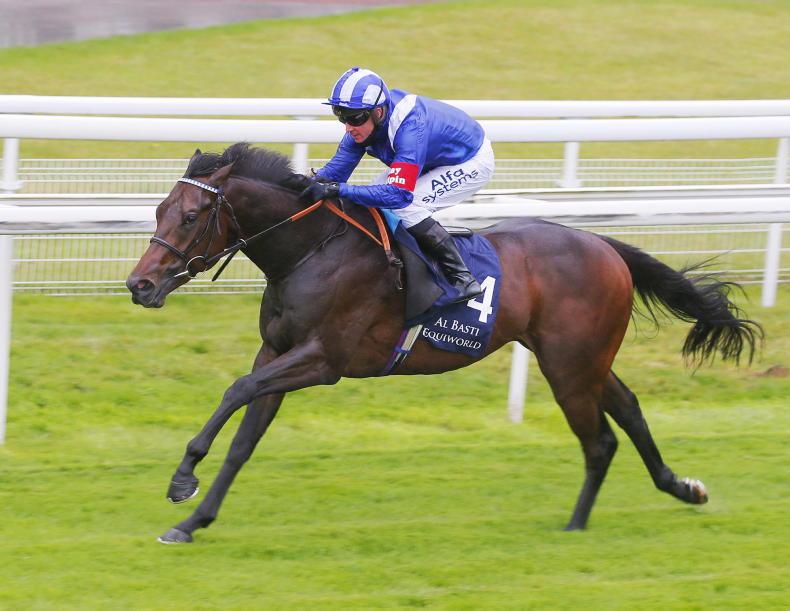
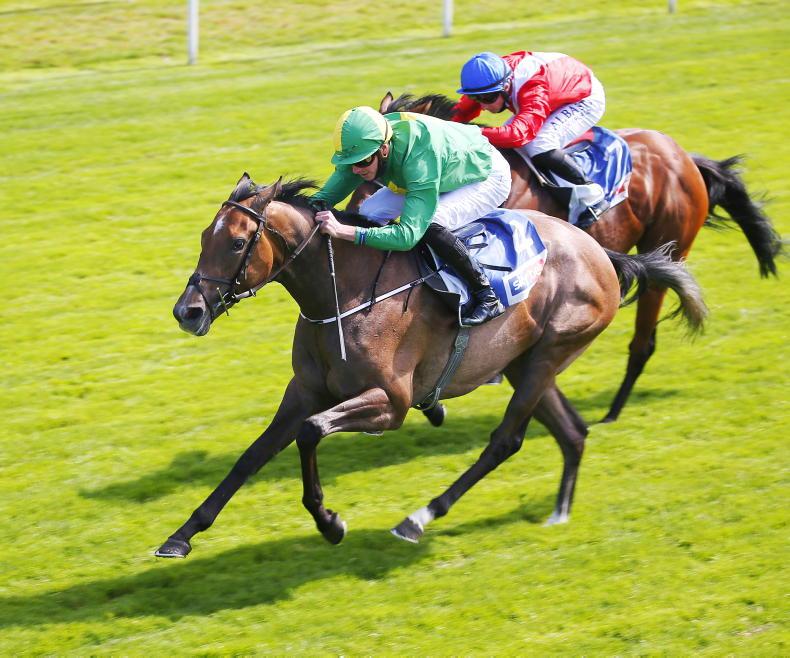
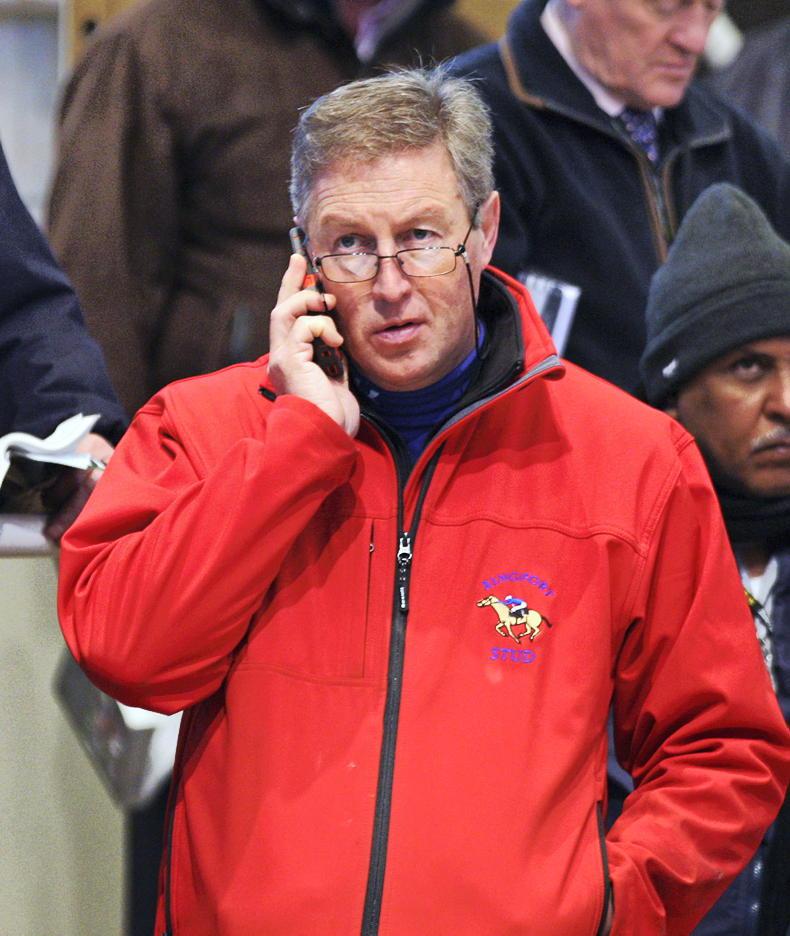
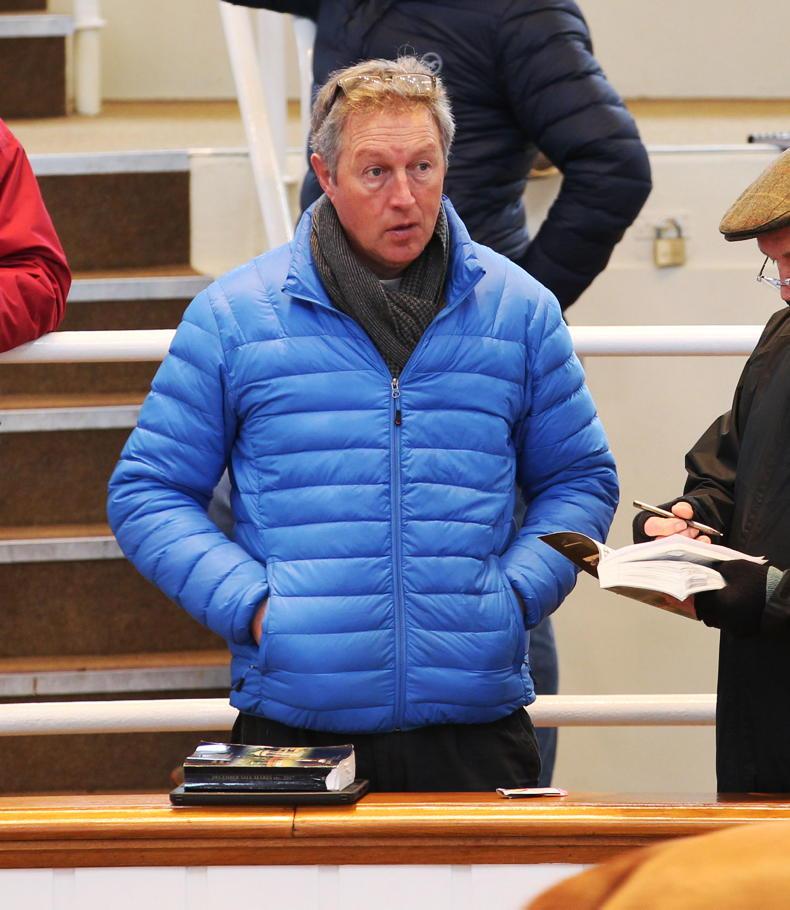

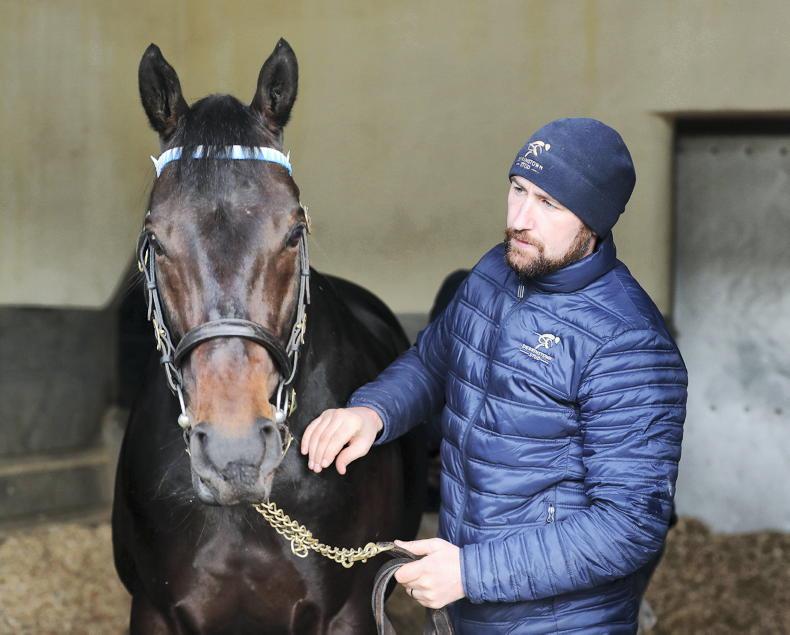

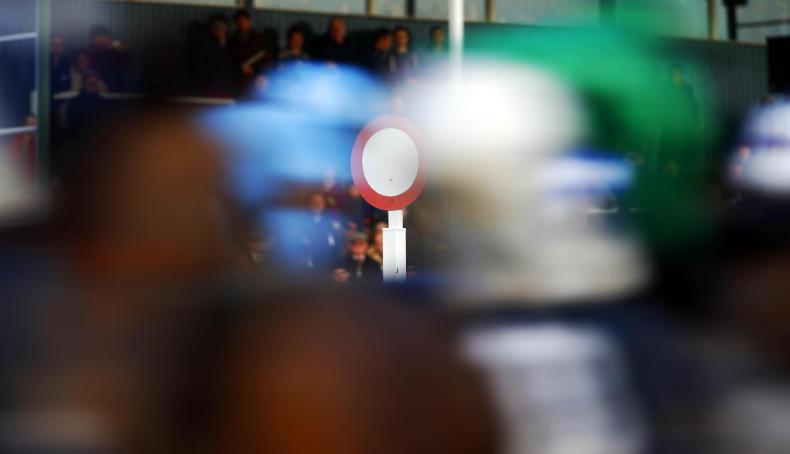
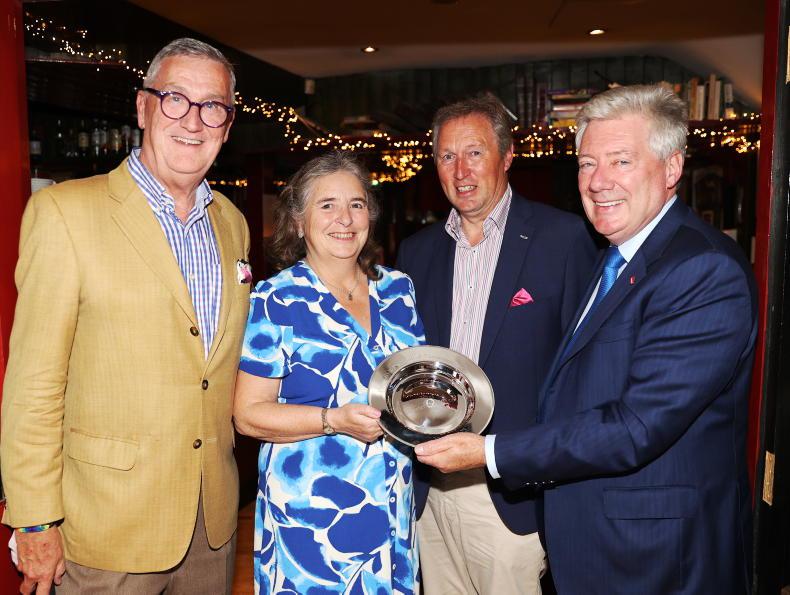
SHARING OPTIONS: